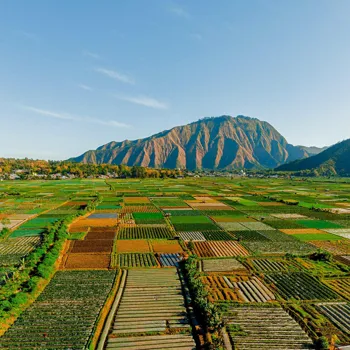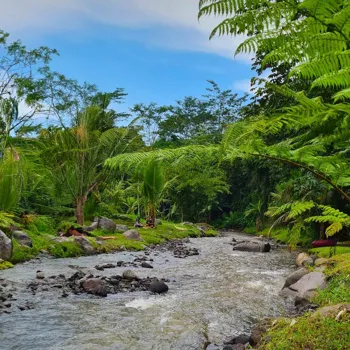Discover how to Travel Responsibly: 7 Tips for Sustainable Adventures in India. Let's explore while preserving our planet
Namaste, fellow wanderers! In our beautiful Bharat, with its diverse landscapes
and vibrant cultures, tourism is booming. But with great travel comes great responsibility. We need to ensure that our adventures don't negatively impact the very places we love to explore.

Sustainable tourism is the key. It’s about traveling in a way that respects the environment, supports local communities, and preserves cultural heritage for future generations. So, pack your bags and get ready to explore India responsibly with these seven simple yet impactful tips:
Embrace Eco-Friendly Accommodation:
Think beyond fancy hotels and explore eco-friendly options. Look for guesthouses, homestays, or eco-lodges that are committed to sustainability. These accommodations often use renewable energy, conserve water, manage waste responsibly, and source food locally.

Staying in these places not only reduces your environmental footprint but also gives you a more authentic experience of the local culture. You might even learn some tips on sustainable living from your hosts!
Check for certifications like LEED (Leadership in Energy and Environmental Design) or Green Key to ensure authenticity. Remember to switch off lights and AC when leaving your room, reuse towels, and conserve water whenever possible. Every small step counts towards making a big difference.
It truly matters to adopt practices that show our support for the betterment of the world.
Support Local Businesses and Communities:
Instead of shopping at big chain stores, try to buy handicrafts, souvenirs, and other products from local artisans and businesses. This helps support their livelihoods and keeps traditional crafts alive. When dining out, choose local restaurants and eateries that use fresh, seasonal ingredients.

Not only will you get a taste of authentic local cuisine, but you'll also be supporting the local economy. Negotiate fairly and pay reasonable prices for goods and services. Also, be mindful of the traditions and customs of the local community.
Dress modestly, ask for permission before taking photos, and avoid behavior that could be considered disrespectful. Engaging with the local people and respecting their culture enhances the travel experience, bringing respect.
Reduce Your Carbon Footprint:
Traveling itself can contribute significantly to carbon emissions. Choose trains or buses over flights whenever possible, especially for shorter distances. Within cities, opt for public transportation, cycling, or walking.

If you have to rent a car, consider choosing a fuel-efficient or hybrid model. Pack light to reduce the weight of your luggage, which in turn reduces fuel consumption. Offset your carbon emissions by donating to environmental organizations that support reforestation or renewable energy projects.
You can also pack reusable water bottles, coffee mugs, and shopping bags to reduce your use of plastic. Even the smallest decision helps make some change.
Practice Responsible Waste Management:
India faces a significant challenge with waste management, so it's crucial to be mindful of your own waste. Carry reusable water bottles and refill them whenever possible to avoid buying disposable plastic bottles. Same with shopping bags and coffee mugs.

Avoid single-use plastics like straws, cutlery, and packaging. Properly dispose of your waste in designated bins. If you're hiking or trekking in remote areas, pack out everything you pack in, including food wrappers and packaging.
Consider carrying a small trash bag to collect any litter you come across on your travels. Recycle whenever possible, and encourage others to do the same.
Respect Wildlife and Natural Habitats:
India is home to a diverse range of flora, fauna, and rich biodiversity, its our responsibility to show our respect towards the ecosystem. When visiting national parks and wildlife sanctuaries, follow the rules and regulations of the park authorities.

Maintain a safe distance from animals, and never feed them. Avoid using flash photography near wildlife. Do not disturb or damage plants or habitats. Refrain from buying products made from endangered species, such as ivory or animal skins.
Choose eco-friendly tour operators who prioritize wildlife conservation and educate visitors about responsible tourism practices. Learn about the local ecosystem that you are in and the dangers of polluting it.
Conserve Water and Energy:
Water scarcity is a growing concern in many parts of India. Be mindful of your water usage while showering, brushing your teeth, and washing clothes. Report any leaks or drips to your accommodation staff. Turn off lights, fans, and air conditioners when you leave your room.
Unplug electronic devices when they are not in use. Choose hotels that have water-saving fixtures and energy-efficient appliances. Support initiatives that promote water conservation and renewable energy in the local community. The planet is shared by all, and should be preserved for all.
Educate Yourself and Others:
Learn about the local culture, customs, and environmental challenges before you travel. Talk to the locals. Read books, articles, and blogs about sustainable tourism practices. Share your experiences and insights with friends, family, and fellow travelers to inspire them to travel more responsibly.

Support organizations and initiatives that promote sustainable tourism and environmental conservation. By educating ourselves and others, we can create a ripple effect that transforms the tourism industry and promotes a more sustainable future for our planet.
Also, encourage them to follow the same path as yourself.
By following these seven simple tips, you can transform your adventures into sustainable experiences that benefit both you and the communities you visit. Let's travel responsibly and protect the beauty of India for generations to come!
Shubh Yatra!
AI Generated Content. Glance/InMobi shall have no liability for the content












